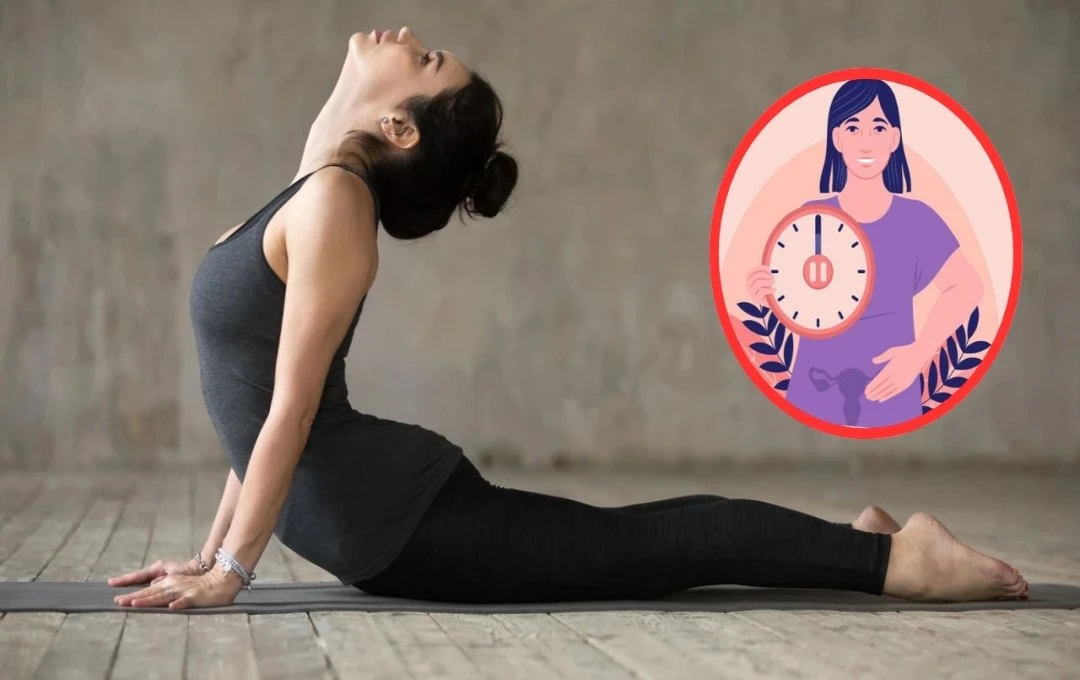Menopause is a significant phase in a woman's life, bringing about changes both physically and mentally. When periods cease permanently, the hormone levels in the body fluctuate considerably, particularly estrogen and progesterone. This change often leads to issues like hot flashes, mood swings, insomnia, and fatigue. However, this period can be managed smoothly and healthily through yoga and a proper diet.
Hormonal Changes and Their Effects During Menopause
During menopause, women experience a decline in estrogen and progesterone levels. These hormones regulate many vital bodily functions, including bone strength, skin radiance, mental health, and energy levels. Hormonal imbalance can cause not only physical discomfort but also increased stress and anxiety.
Hot flashes, insomnia, anxiety, mood swings, and weight gain are common symptoms that need to be managed to maintain quality of life.
The Importance of Yoga in Menopause

Yoga is not just a physical exercise but a holistic lifestyle that balances the body, mind, and soul. During menopause, certain yoga asanas are extremely helpful in balancing hormonal imbalances.
- Tadasana (Mountain Pose)
Tadasana is a stretching pose that improves blood circulation. It strengthens the pelvic floor muscles and helps reduce mental stress. Practicing Tadasana increases the body's energy level and calms the mind. - Sukhasana (Easy Pose)
Sukhasana is an ideal pose for meditation and peace. It reduces stress and stabilizes the mind, helping to control emotional instability experienced during menopause. - Pranayama and Meditation
The process of deep breathing, or Pranayama, is very effective in improving hormonal imbalances. Regular Pranayama increases oxygen flow in the body, reduces stress, and improves sleep quality. - Shavasana (Corpse Pose)
Mental and physical relaxation are very important during menopause. Shavasana completely relaxes the body, reducing stress and anxiety.
The Right Diet in Menopause: Building a Healthy Body with Nutrition

During menopause, women require special nutrition. A proper diet not only provides the body with energy but also helps maintain hormonal balance.
- Protein-Rich Diet
Protein helps maintain b muscles and sustains the body's energy. Include sprouted grains, peanuts, almonds, lentils, and yogurt in your diet. - Calcium and Vitamin D
Bones tend to weaken during menopause, so consuming calcium and vitamin D is essential. Milk, cheese, green vegetables, and regular sun exposure are necessary. - Fiber-Rich Diet
Consume fruits, vegetables, and whole grains to keep the digestive system healthy. This reduces constipation and helps eliminate toxins from the body. - Hydration
Drink plenty of water, lemonade, and coconut water to keep the body hydrated. This also keeps the skin healthy and glowing. - Limited Intake of Salt and Sugar
Excessive consumption of salt and sugar can lead to weight gain and affect blood pressure. Therefore, consume them in limited quantities.
Lifestyle Changes During Menopause
- Regular Exercise: Along with yoga, light exercises like walking, swimming, or cycling are beneficial.
- Stress Management: Reduce stress through meditation, pranayama, and laughter yoga.
- Healthy Sleep: Getting 7-8 hours of sleep daily is essential for body repair and hormone balance.
- Positive Thinking: A positive mindset can help manage menopause symptoms better.
Menopause is a natural transition in a woman's life that can be managed smoothly with the right information and care. Yoga and a balanced diet make this process easier and healthier. Simple yoga asanas like Tadasana, Sukhasana, Pranayama, and meditation are highly effective in reducing the symptoms of hormonal imbalance. Additionally, prioritizing a diet rich in protein, calcium, vitamin D, and hydration is also essential.















